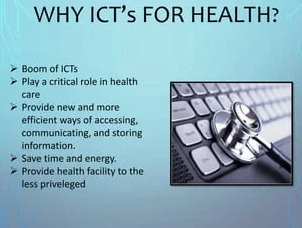Revolutionizing Healthcare: The Impact of Health Information Technology
Health information technology (HIT) is transforming the way healthcare is delivered and managed throughout the world. From electronic health records (EHRs) to telemedicine, HIT is revolutionizing healthcare in numerous ways.
Improving Patient Care
HIT allows for better communication among healthcare providers, leading to more coordinated and efficient care for patients. EHRs provide a comprehensive view of a patient’s medical history, medications, and test results, which helps healthcare providers make more informed decisions about patient care.
Increasing Efficiency
By digitizing medical records and streamlining administrative processes, HIT helps healthcare organizations operate more efficiently. This can lead to cost savings, reduced paperwork, and faster response times for patients.
Enhancing Diagnosis and Treatment
HIT tools such as clinical decision support systems help healthcare providers identify potential diagnoses and treatment options based on a patient’s symptoms and medical history. This can lead to more accurate diagnoses and personalized treatment plans for patients.
Expanding Access to Care
Telemedicine, which allows patients to consult with healthcare providers remotely, is a key component of HIT that can improve access to care for patients in remote or underserved areas. Telemedicine can also reduce healthcare costs and minimize the need for in-person visits.
Ensuring Data Security and Privacy
As healthcare organizations transition to digital systems, ensuring the security and privacy of patient data is crucial. HIT includes safeguards such as encryption, authentication, and audit trails to protect patient information from unauthorized access or breaches.
Empowering Patients
HIT tools such as patient portals and mobile health apps empower patients to take control of their health by accessing their medical records, scheduling appointments, and communicating with healthcare providers. This can lead to better patient engagement and improved health outcomes.
In conclusion, health information technology is revolutionizing healthcare by improving patient care, increasing efficiency, enhancing diagnosis and treatment, expanding access to care, ensuring data security and privacy, and empowering patients. As HIT continues to evolve, healthcare professionals must embrace these technologies to provide the best possible care for their patients.

